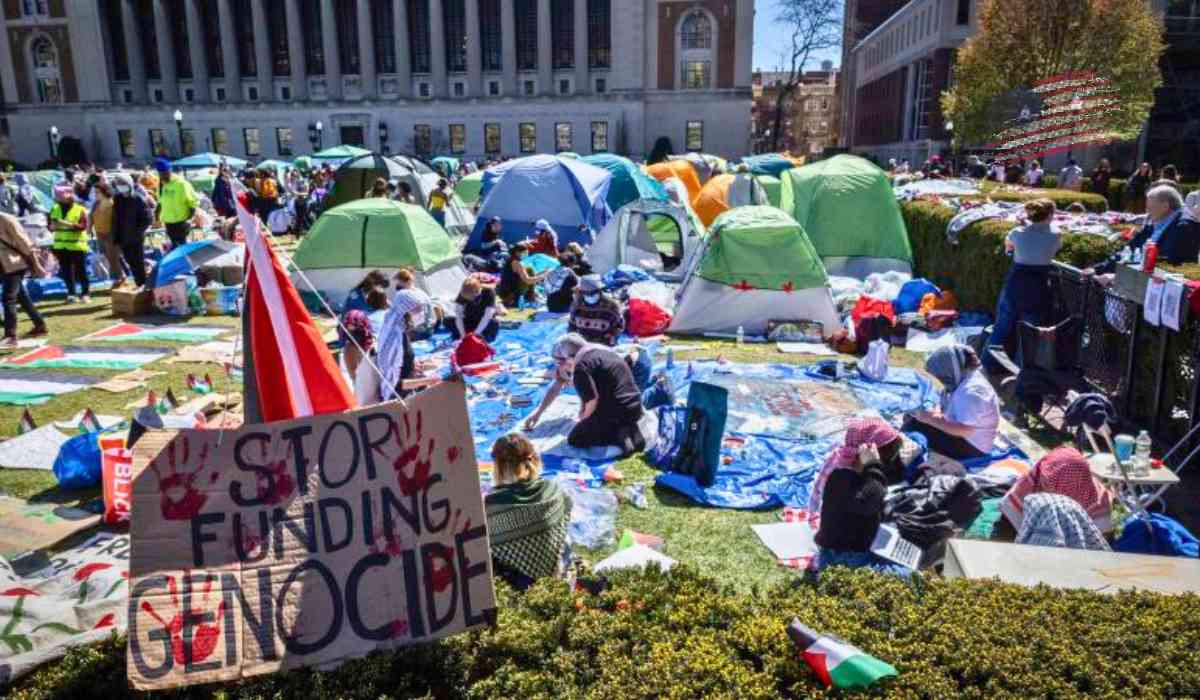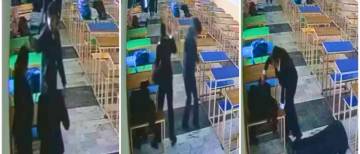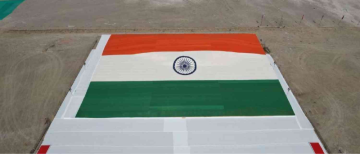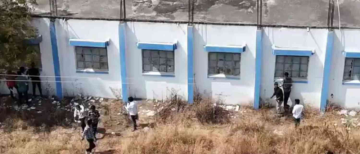Within the United States, a nation heralded for its dedication to freedom and democracy, a troubling contrast has emerged. On one side, the splendour and grandeur of the White House Correspondents' Dinner, held on April 27, 2024, highlighted the nation's support for an unrestricted press. The lavish affair, attended by the elite of Washington, D.C., saw journalists and comedians honoured for their role in holding power to account, amidst a backdrop of opulence and affluence.
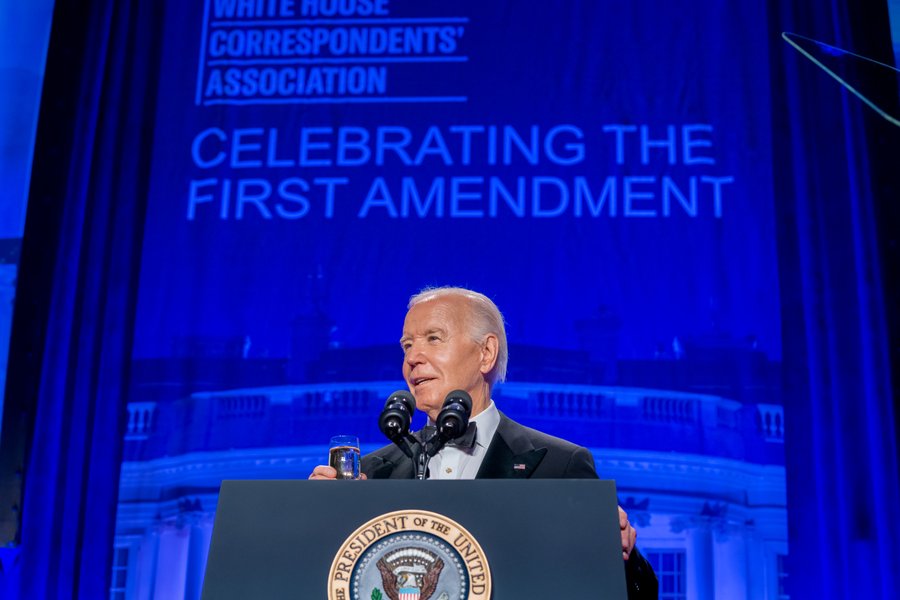
The Invisible Press
However, amidst the festivities, did the press turn a blind eye to the crackdown unfolding nearby? Student-led protests across university campuses, advocating for peace in Gaza and urging divestment from companies implicated in the conflict, were met with force. Peaceful demonstrations escalated into scenes reminiscent of conflict zones, with heavily equipped riot police forcibly dispersing and apprehending students.
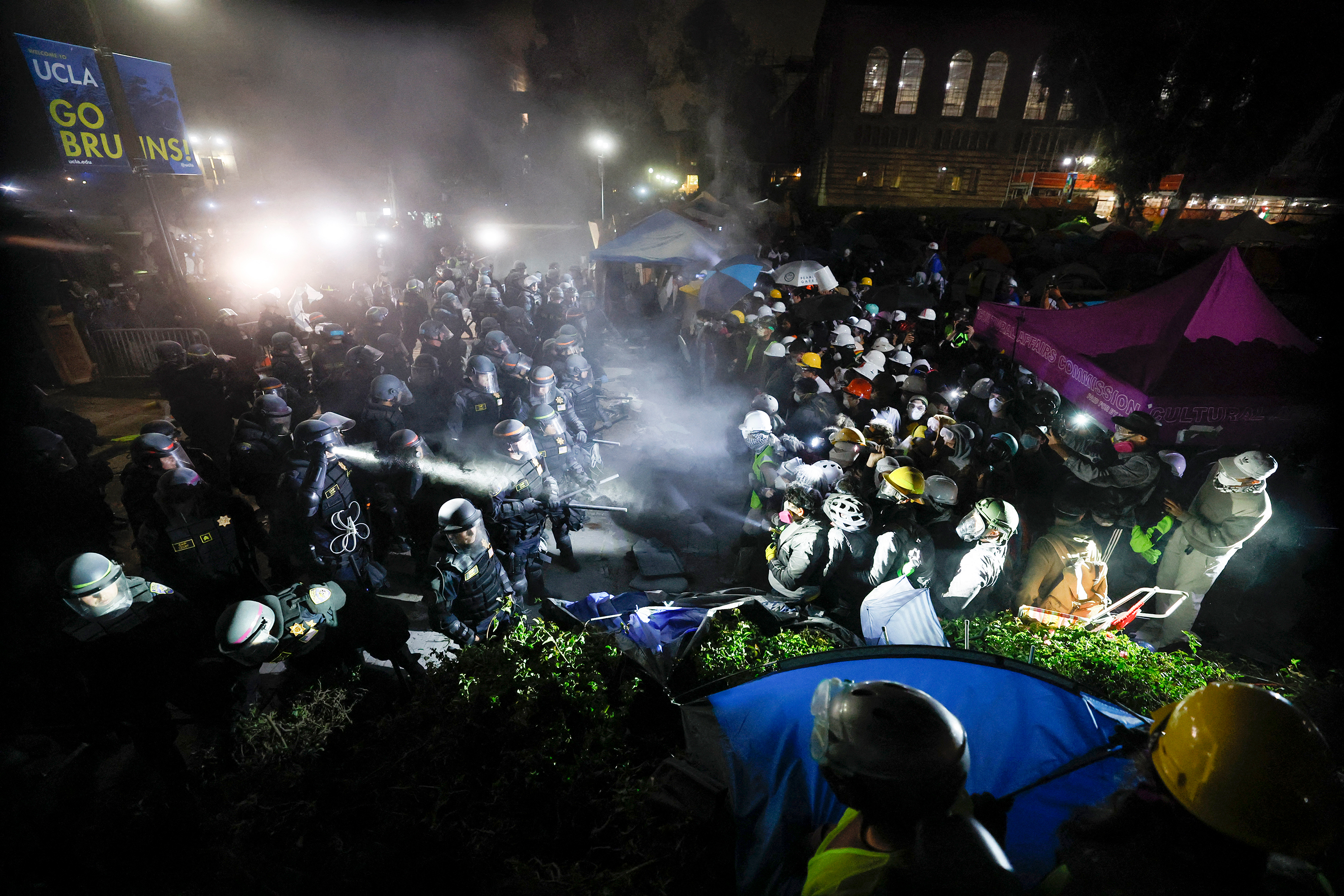
Police face off with pro-Palestinian demonstrators after destroying part of the encampment barricade on the UCLA campus on May 2. (PC:CNN)
According to a report by various US press outlets, until now, more than 800 arrests were made at universities nationwide during these protests.
Here are the key details from the latest developments on campuses nationwide:
-
Columbia University and City College (New York): About 300 protesters were arrested late on Tuesday, but it's unclear how many were students vs. non-students.
-
University of Arizona: Law enforcement used pepper balls and rubber bullets against protesters. Fordham University: At least 15 people were arrested after dozens of protesters set up an encampment inside the university's Lowenstein building. The school asked the NYPD to be on campus through at least May 22.
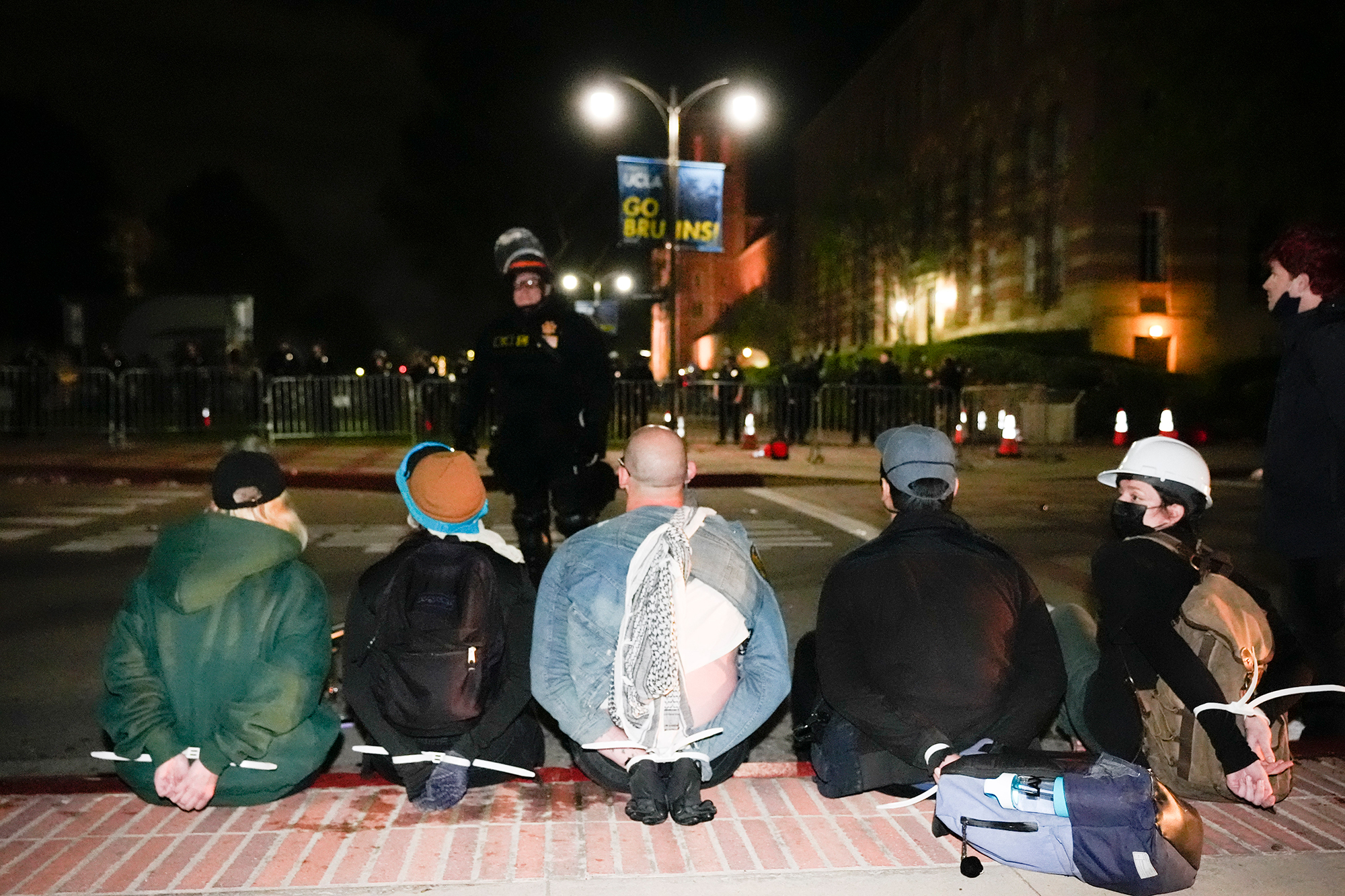
Demonstrators are detained on the UCLA campus on Thursday, May 2 , (PC: CNN) -
University at Buffalo: Approximately 16 people were arrested Wednesday night after a pro-Palestinian protest on the university's North Campus .
-
University of Wisconsin-Madison: Several protesters were arrested on Wednesday, according to the chancellor.
-
Dartmouth College: 90 people were arrested at a Wednesday pro-Palestinian protest on suspicion of criminal trespass and resisting arrest.
-
University of Texas at Dallas: At least 17 arrests have been made on campus as of Wednesday evening.
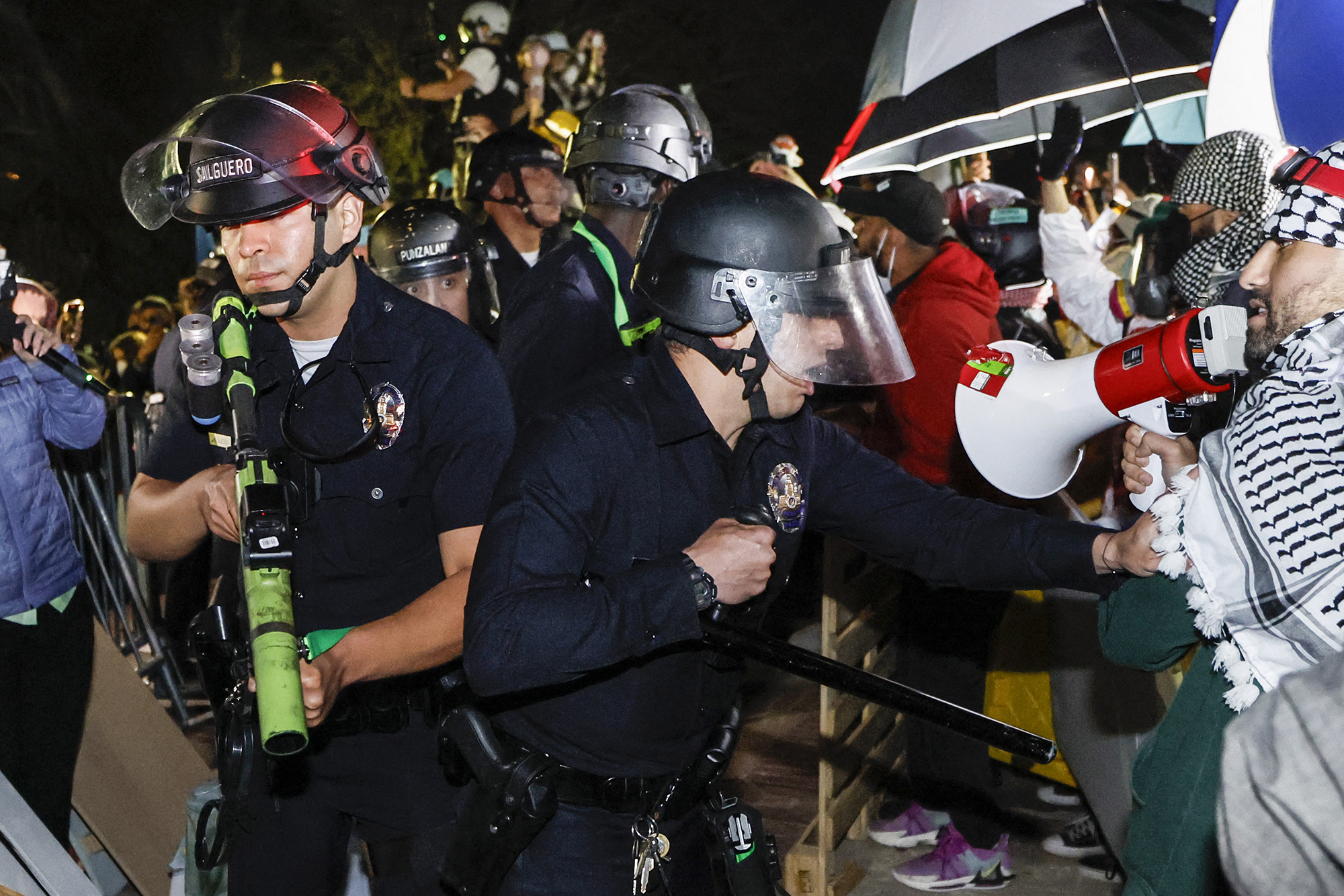
Police react while pro-Palestinian students stand their ground after police breached their encampment at the campus of the University of California, Los Angeles, California, early on May 2. (PC: CNN)
This stark contrast between the celebratory ambiance of the Correspondents' Dinner and the crackdown on student protests highlights the unequal application of free speech in America. While journalists mingle with the political elite, a new wave of activists faces suppression for speaking out on a crucial human rights issue.
For more on this: Protests And Arrests At US Campuses Spark 'Anti-Semitic' Debate
Navigating Shades of Grey: The Complexities of Protest
While the crackdown may be contentious, some argue it stems from concerns over alleged anti-Semitic rhetoric within the protests. Universities wrestle with maintaining a safe environment for all students while preserving free speech, a delicate balance that necessitates condemning hate speech while respecting dissenting voices.
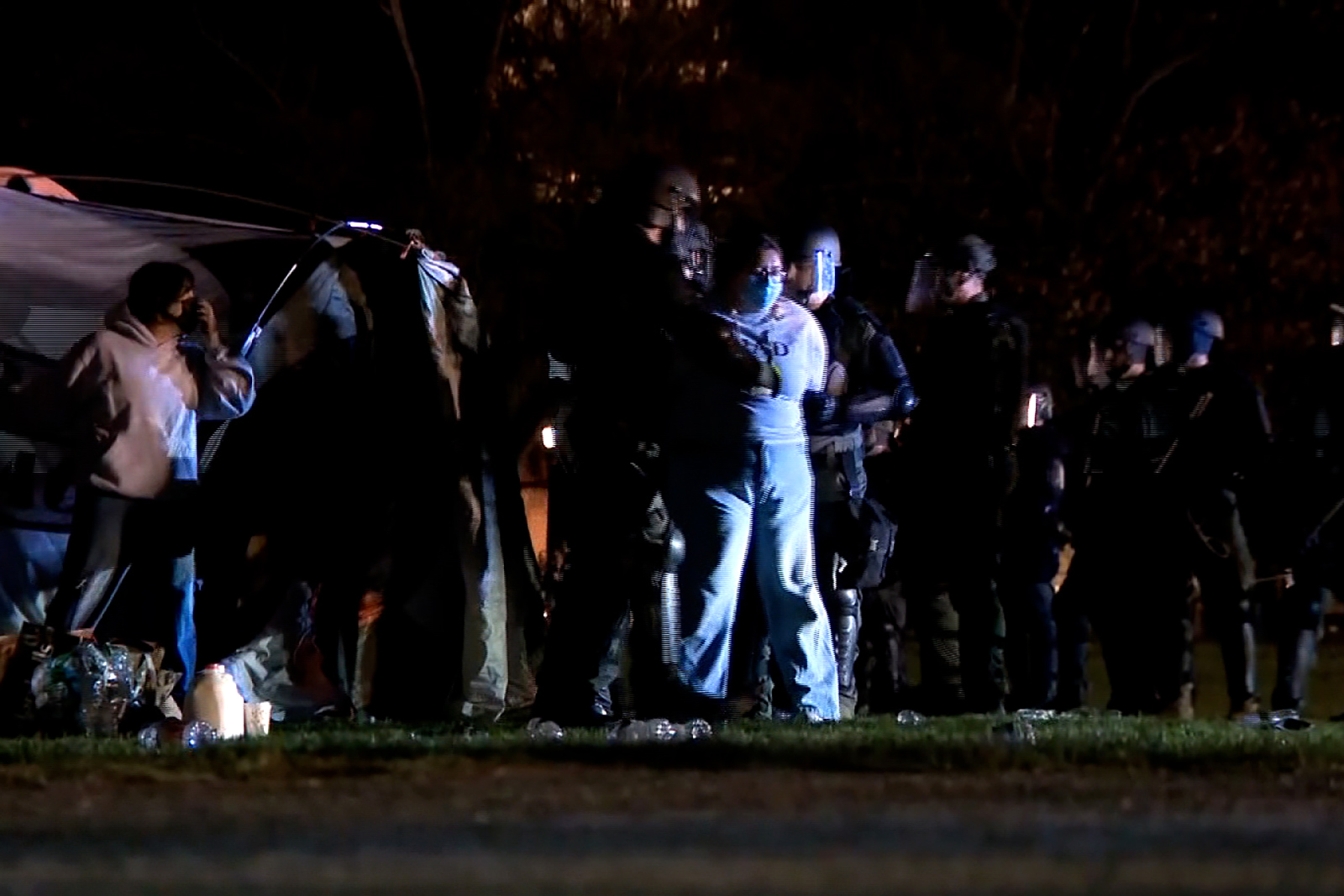
Police arrest protesters at Dartmouth College on Wednesday night. (PC: CNN)
The students, on their part, have employed various tactics, including peaceful demonstrations, sit-ins, and symbolic encampments on campus grounds. These actions echo past student movements, drawing parallels to the anti-Vietnam War protests of the 1960s.
For more on this: The Legacy Of Dissent: Understanding The Importance Of Student Anti-War Movements Through History
The protests have ignited a fervent debate on the boundaries of free speech, with accusations of hate speech volleyed from both sides. Bridging this divide requires navigating a complex landscape where fervent criticism of governmental policies risks being misconstrued as anti-Semitism.
A Call to Engage: Narrowing the Divide Between Aspiration and Reality
The current state of affairs presents an opportunity for reflection and reform. It's a chance for the United States to bridge the chasm between its aspirations and its actions. Here are actionable steps you can take:
* Contact your representatives: Express your concerns about the disproportionate response to the student protests and urge them to advocate for policies that safeguard free speech while condemning hate speech.
* Support student organisations: Contribute financially or volunteer your time to groups advocating for Palestinian rights or free speech on campuses. These organisations are at the forefront of the movement, and your support can bolster their efforts.
* Participate in respectful dialogue: seek out diverse perspectives and engage in civil discussions about this intricate issue. Given the echo chamber of social media, strive to converse with individuals holding differing viewpoints.
* Demand transparency from universities: Hold your alma mater accountable for its handling of the protests. Inquire about their free speech policies and seek clarity on incidents leading to arrests or disciplinary measures.
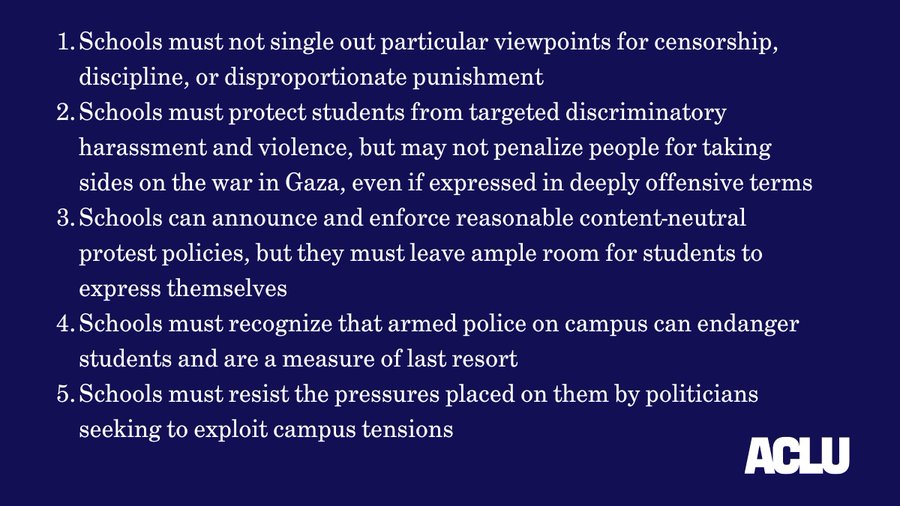
an open letter to college and university presidents across the nation outlining five basic guardrails. (PC: X)
Universities play a pivotal role in fostering an open dialogue that acknowledges the plight of Palestinians while rejecting anti-Semitism. As the world watches, America faces a decision: to champion freedom solely for the privileged few or to uphold these principles for all. The choice rests in our collective hands. By advocating for change and demanding accountability, we can ensure that the ideals of democracy extend beyond the corridors of power and resonate where future generations raise their voices.
A Satirical Twist: The Correspondents' Dinner and Freedom of Speech
Adding a layer of irony, comedian Colin Jost, performing at the Correspondents' Dinner, offered a wry observation about the event itself. He jestingly remarked,
"The Correspondents' Association offers scholarships to promising young journalism students who might one day be dispatched to cover perilous geopolitical hotspots like Columbia University."
This satirical jab underscores the disparity between the realm of elite journalism and the realities faced by those exercising their right to free speech on the ground.
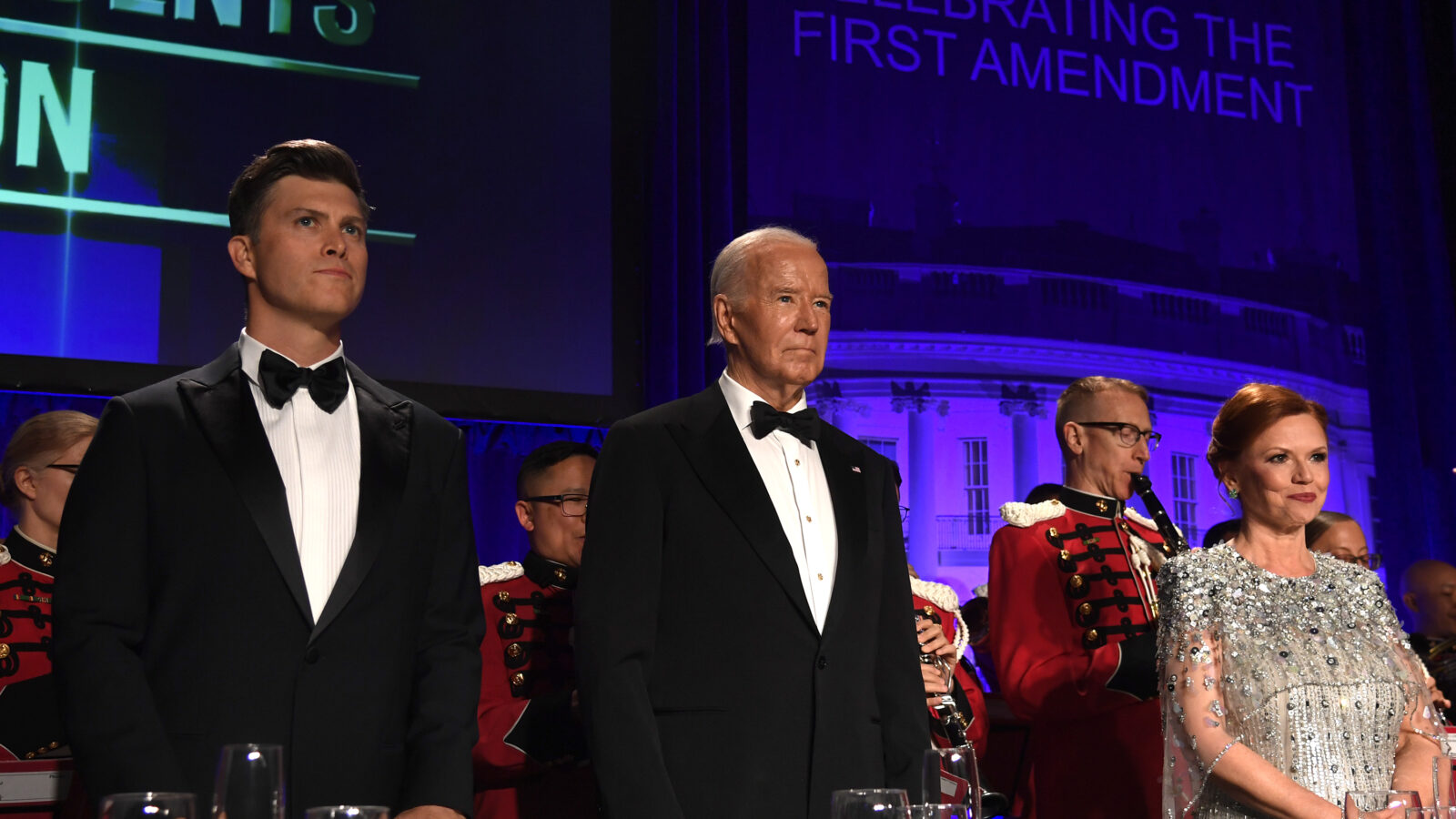
Further Strengthening the Argument
Eight percent of Millennials and Gen Xers reported having attended a rally or demonstration, compared to fifteen percent of Gen Z adults in the United States who responded to the same Statista survey in 2023. At thirty percent, Gen Z adults were also the most likely generation to volunteer for a cause or organisation.
This sentiment underscores public support for the fundamental tenet of free speech, even amidst uncomfortable discourse. However, the Foundation for Individual Rights and Expression (FIRE) report also notes that 43% of surveyed students admitted to feeling apprehensive about expressing their political beliefs on campus due to potential repercussions. This chilling effect underscores the tangible consequences of cracking down on student protests.
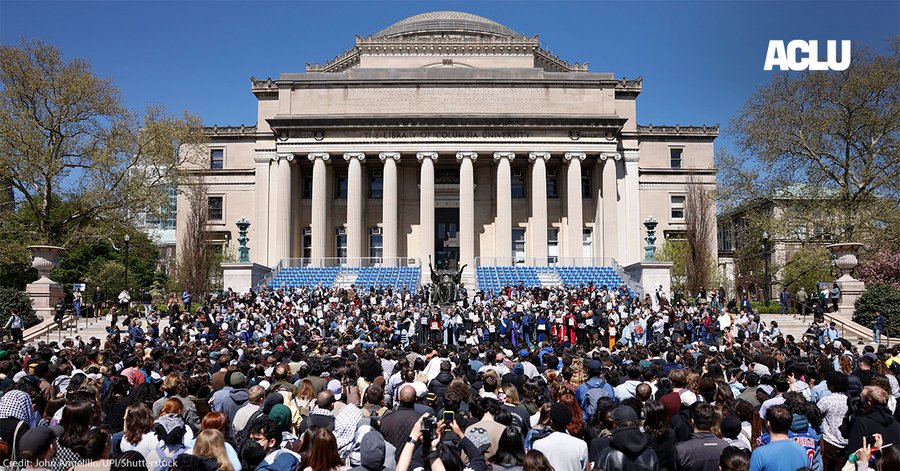
Conclusion: A Call to Uphold a More Perfect Union
The juxtaposition between the jubilant atmosphere of the White House Correspondents' Dinner and the stifling of student protests lays bare a fundamental flaw in the American democratic ideal. It's a nation that extols free speech yet appears hesitant to extend that liberty to all voices. The current juncture demands a reaffirmed dedication to the core principles of a free and equitable society. All, as citizens, must hold our institutions accountable and ensure that the right to dissent flourishes not solely within the confines of elite gatherings but also on the streets, where future generations strive for a more perfect union.
Media Sources: multiple agencies
ⒸCopyright 2024. All Rights Reserved Powered by Vygr Media.

